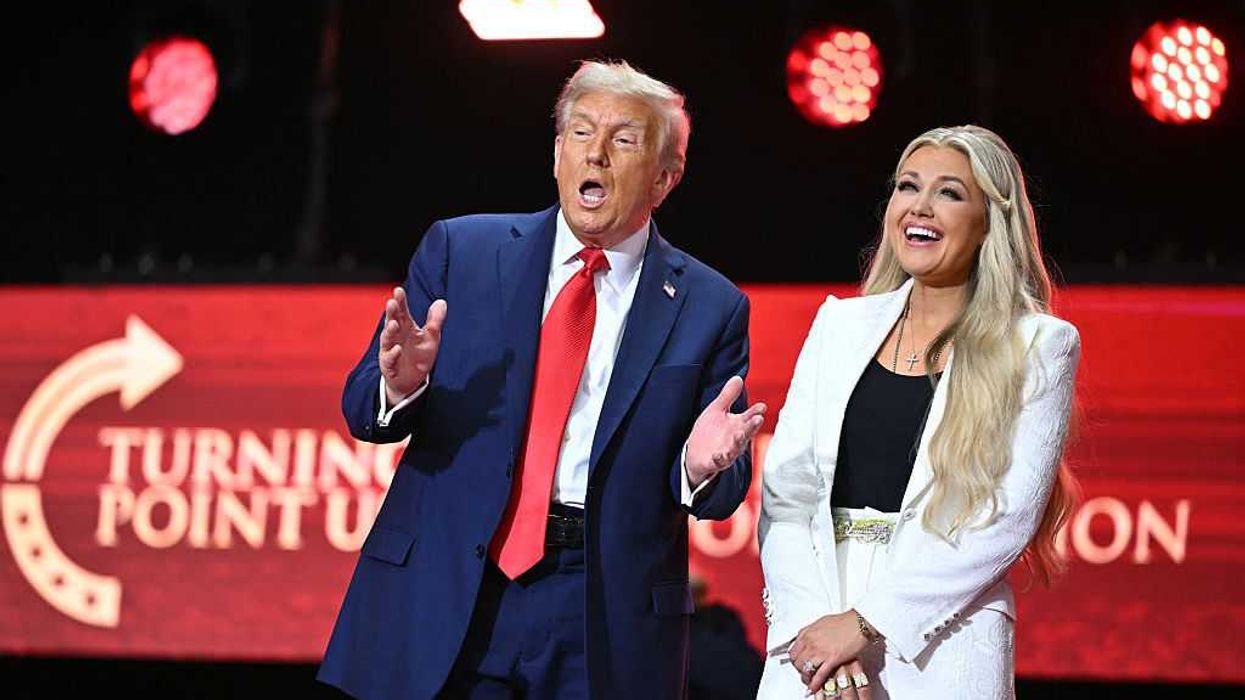In the wake of Jimmy Kimmel’s— apparently temporary— suspension from late-night TV, a (tragically small) number of prominent conservatives and Republicans have taken exception to the Trump administration’s comfort with “jawboning” critics into submission.
Sen. Ted Cruz condemned the administration’s “mafioso behavior.” He warned that “going down this road, there will come a time when a Democrat wins again — wins the White House … they will silence us.” Cruz added during his Friday podcast. “They will use this power, and they will use it ruthlessly. And that is dangerous.”
Ben Shapiro, the MAGA-adjacent media mogul, concurred. While he offered little sympathy for Kimmel, he too warned against the moral hazard problem. “I do not want the FCC in the business of telling local affiliates that their licenses will be removed if they broadcast material that the FCC deems to be informationally false,” Shapiro said. “Why? Because one day the shoe will be on the other foot.”
There were others, including Sen. Rand Paul. But not many. They should be congratulated for offering any pushback against the new right’s strange mix of bullying and moral panic in the wake of the heinous murder of right-wing activist Charlie Kirk.
Indeed, it’s remarkable that the dual response to Kirk’s killing has been for his admirers to simultaneously praise Kirk’s commitment to free speech while showing very little such commitment themselves.
The cognitive dissonance has been remarkable. Kirk — rightly— ridiculed the concept of “hate speech” as a legal category. “Hate speech does not exist legally in America. There’s ugly speech. There’s gross speech. There’s evil speech. And ALL of it is protected by the First Amendment. Keep America free,” Kirk posted last year.
Yet, in response to the at times ugly, gross and evil speech that followed Kirk’s murder, Atty. Gen. Pam Bondi promised that “especially after what happened to Charlie,” Trump’s Justice Department “will absolutely target you, go after you, if you are targeting anyone with hate speech.”
The president, as is so often the case, made the issue about himself, saying that if news coverage about him is too lopsidedly negative “that’s no longer free speech.” When network news casts a good story in a bad light, Trump said, “See, I think that’s really illegal.”
But there’s a problem with the primary argument offered by Cruz, Shapiro and others on the right in response to the administration’s heel turn on the 1st Amendment. And the problem is not that they’re wrong. Cruz and Shapiro are obviously correct to worry that a future Democratic administration could exploit the precedents Trump is laying down to target right-wing media. Indeed, many argue — correctly — that Trump is exploiting precedents laid down by the last Democratic administration. This is oft-repeated argument for retribution: “They did it to us first.”
Again, the problem with the “they did it to us first” and the “they could do this to us later” arguments — about censorship but also “lawfare,” congressional redistricting, etc. — is not that they’re wrong. It’s that they sidestep the wrongness of the deeds themselves.
Just for purposes of illustration, consider that Kirk’s murder was wrong, regardless of anything he said or anything you might believe he said. Murder is wrong independent of any other considerations (if there are mitigating factors for taking a life, we stop calling it murder). If a right-winger kills some prominent left-wing influencer as “payback,” that would be wrong too. As a matter of moral logic, bad acts cannot be justified by other bad acts. We are all taught this from childhood: Two wrongs don’t make a right.
Unfortunately, because of the tribal logic of our time, this ancient moral precept has been supplanted by the “Chicago way” — any transgression that they visit upon us must be repaid with interest.
I don’t condemn the argument that conservatives should be wary of reaping later what they are sowing now. Warning that they might be on the receiving end of the Chicago way the next time Democrats are in power just may be the only argument that many on the right are willing to buy right now. But I do lament how tribalism causes each tribe to forgo arguments based on objective standards. Using the government to punish critical speech is wrong, regardless of who is in power and regardless of whether the criticism is right or fair.
When you argue that you have to fight fire with fire, not only does everything get burned, you let your opponents’ indefensible behavior become your new standard for defensible behavior.
Oh, just for the record, you don’t fight fire with fire. You fight it with water. And a lot of people could use a splash of cold water right about now.
Jonah Goldberg is editor-in-chief of The Dispatch and the host of The Remnant podcast. His Twitter handle is @JonahDispatch.




















